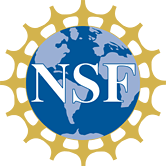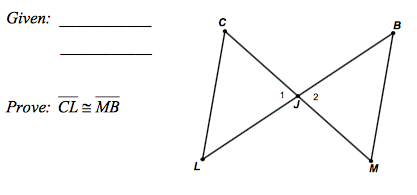Related Work
Geometry Proof Project Description (2010 – 2012)
To learn more about and support beginning geometry teachers as they engage their students in proving, this project will develop a community of six second-year teachers working together through professional development to improve the ways in which they teach proof. More specifically, this project will study: (a) the discourse of beginning geometry teachers when they are teaching proof, (b) the discourse of this same group of teachers after they participate in professional development that provides them with tools (i.e., talk moves) designed to engage their students in proving, and (c) the ways in which the professional development experience influences the discourse. This two-year study will be conducted in several phases.
In Fall, 2010, I will video-record, observe and interview the teachers to document their classroom discourse around proof and their beliefs about and goals for teaching proof. In Spring, 2011, I will meet with the teachers as a group on a monthly basis to review the videos of their teaching, reflect on their classroom discourse, and develop goals for improving their proof-related classroom discourse. Resources from mathematics education research will provide new information to teachers that will help them set and refine their goals. Over the summer, the group will meet seven times to learn about the talk moves. All group meetings will be documented through video-recording and field notes. In Fall, 2011, additional interview and classroom data will be collected to observe changes in classroom talk. My analysis will focus on how the teachers use talk moves to gain access to their students’ thinking and engage them in proving. Finally, in the spring of 2012, teachers will give talks about their work to classroom teachers and researchers at the annual meeting of The National Council of Teachers of Mathematics in Philadelphia, PA.
This study addresses three important and timely areas of research in mathematics education: proof, discourse, and professional development of beginning mathematics teachers. The project is significant not only in the ways that it supports and studies beginning mathematics teachers but also in its potential to generate important findings related to the improvement of teaching proof at the high school level.
NOTE: This study was extended for one additional year with the support of University of Delaware General University Research funds.
On Becoming a Geometry Teacher (2008)
(Dissertation Abstract)
My experiences as a teacher and as a researcher led me to pursue the topic of this dissertation – how a new teacher learns to teach proof to high school geometry students. Through my work on another research project, I became interested in this 10th grade teacher after watching him teach proof for the first time. I anticipated that, not unlike my own experience as a teacher of geometry, this teacher’s proof-related teaching and discourse practices would look different in subsequent years. This classroom provided a context for me to study how a beginning teacher, using a conventional textbook, develops his practice related to teaching proof.
In order to pursue this dissertation topic, I designed a longitudinal case study in which I collected data across three years, including classroom observation data, interviews, reflective writings on the daily lessons, and instructional materials that were used in the classroom (e.g., the textbook). In addition, interviews conducted for a larger research project provided background information that was relevant to this study.
Drawing from the literature on new teacher induction, curriculum enactment, proof in school mathematics, and classroom discourse, I discuss how and why this beginning teacher’s practice changed across time. More specifically, in this dissertation, I describe how and why the teacher: supplemented the written curriculum with additional proofs and tasks; explicitly increased his focus on the process of proving; and created more space for student participation. I argue that the teacher purposefully made these changes in order to enact a practice that was more like what he called “real math” than like school mathematics.
Three significant findings of this study are related to issues of curriculum use, authentic mathematical practices, and professional development in the area of classroom discourse. For example, the teacher explored the use various proof forms, and his participation in a professional development experience motivated him to experiment with various discourse moves. This study has implications for teacher educators, curriculum developers, mathematics supervisors, and researchers interested in understanding issues related to the teaching and learning of proof in school mathematics.


